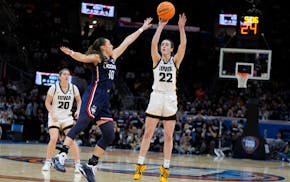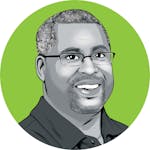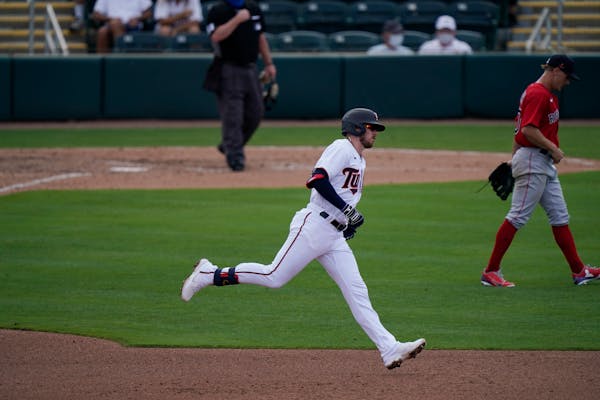There are incentives for the Twins and other teams to get behind the vaccination push.
Once a Major League Baseball team has 85% of its players and key staff protected from COVID-19, it is rewarded with freedoms.
Players and coaches don't have to wear masks in dugouts or bullpens.
They can ditch the electronic tracking devices. They can come and go more freely from hotels. They can carpool to and from ballparks, or use Uber and Lyft.
Family members who are vaccinated can join them on road trips. The number of tests would be reduced.
Despite this motivation, not all players are rolling up their sleeves. There is concern within the organization that the Twins will never reach the 85% threshold because of a small group of players who, for various reasons, are not willing to be vaccinated.
Five players and staff members have now landed on the COVID-19 list in the past week, causing three game postponements and forcing members of the traveling party to remain in their hotel rooms this past weekend and pass multiple tests before they were allowed to travel to Oakland on Monday night to play three games in two days.
Before they left for Oakland, Twins pitchers on Monday had to go to a grassy area near their hotel in Anaheim to play catch and keep their arms loose after their final two games against the Angels were postponed.
Back in March, shortstop Andrelton Simmons used social media to announce that he would not take the vaccine, citing "personal reasons and past experience." Last Tuesday night, he tested positive for the virus. The three other positive tests (Kyle Garlick, Max Kepler, unnamed staffer) that followed were for the same variant. The aggressive nature of the variant drove the decision to not play the final two games in Anaheim.
The positive tests and the internal spread are gut punches to an organization that has been diligent in avoiding outbreaks. They made it through their 2020 schedule without interruption and even produced detailed cleaning reports to keep a July series vs. Cleveland on schedule. Only four Twins players had tested positive before this outbreak, and only one of those came this year (J.A. Happ back in February). The Twins even dismissed three minor league coaches during spring training for violating protocols. This is how seriously they have taken staying safe.
But it wasn't enough.
"I'd like to get through the next week with no issues at all," Twins manager Rocco Baldelli said before Tuesday's games, "before I start to feel like this particular entry of COVID into the clubhouse is resolved."
Simmons has taken on an anti-vaxxer stance. You and I probably know a few people with similar beliefs. Regardless of what socio-economic level you operate on, there are risks for taking such a stance.
For the Twins, and baseball, the risk is spreading the virus, getting other people sick and having games postponed that will lead to scheduling headaches. The Twins will have to return to Anaheim at some point to make up two games, probably a pair of seven-innings games in a doubleheader. A cross-country flight for 14 innings.
After playing a 2020 season shortened to 60 games because of the pandemic — and watching the death toll in this country pass 560,000 — there shouldn't be a problem with players getting shots in the arm for a chance to creep closer to normalcy. But the Twins are not the only team battling vaccine hesitancy.
Seattle manager Scott Servais said recently that the word around the league is that about 10 teams have reached or will pass the 85% threshold. The Cardinals, who endured a two-week pause last season because of COVID-19, were among the first teams to reach that mark.
It seemed that as soon as vaccines would be made available this year, teams would fully join the cause. But that hasn't happened.
Will an outbreak make some Twins players change their minds?
"We're not here to press our players. Our players, at this point, are going to make their own decisions," Baldelli said. "We're going to support the decisions that they make. Are there some things that become maybe easier for us protocol-wise if we reach that 85% threshold? Yes. But again, this isn't going to be something that's going to continue on from our end on a regular basis, trying to get anyone to do anything that they're not comfortable doing."
Neal: Eulogy for a bad season. May the Wild's future come quickly.
Neal: Tessa Johnson still feeling Minnesota's love in S. Carolina
Neal: From LeBron to STMA, Tessa Johnson lit up the basketball world


